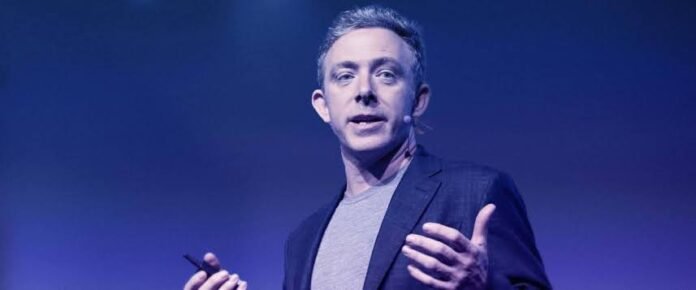Dominic Williams, the founder of Internet Computer (ICP) and DFINITY, has devised an unusual proposal to hasten the conclusion of Russia’s invasion of Ukraine using smart contracts and $250 million in cryptocurrency prizes. His idea focuses on counter-propaganda and enlightening the Russian population—which he claims is “totally uneducated”—about the truth of what is happening in Ukraine, which would then push them to pressurise the government to end the crisis. He stated that people should not expect sanctions alone to turn the Russian people against their leaders for the simple reason that the government controls their media, which dutifully pours out perfectly produced propaganda and incorrect information.
According to his idea, blockchain technology and smart contracts can be used to gather huge numbers of verified Russian residents to view “educational media” about the conflict in virtual reality parties nicknamed “people parties”. Each participant who demonstrates personhood through the people party method is then recognised as an individual human being through smart contracts, he explained. The technique eliminates cheating by limiting a person’s attendance on each run to exactly once. He added that smart contracts would create a new crypto account for each successful participant, which they would be able to access and control using their internet identity.
Personal proposal to hasten the end of the attack on Ukraine using smart contracts and $250m in bitcoin and ether.https://t.co/0u14ixop3Z
— dom.icp ∞ (@dominic_w) March 15, 2022
Williams recommends that crypto incentives in assets such as Bitcoin (BTC) and Ether (ETH) be used to incentivise residents. Each Russian citizen would be obliged to watch the video/s until the end since the pin numbers associated with their accounts would not be unlocked until all of the content was consumed.
The streaming video will convey the truth about the Ukraine war and urge Russians to put pressure on their government to end hostilities. The ideal way to build such a video should be left to experienced filmmakers. He emphasised that a non-watermarked version should be made accessible for download, allowing recipients to display the movie to others.
Willaims’ $250 million figure is based on his idea that each participant be paid $50 for each film seen, with the goal of enticing 5 million Russians to watch the instructional videos. Many eventualities must fall into place for the plan to succeed, the most crucial of which is that the internet remains operational with no interference from the Russian government.




